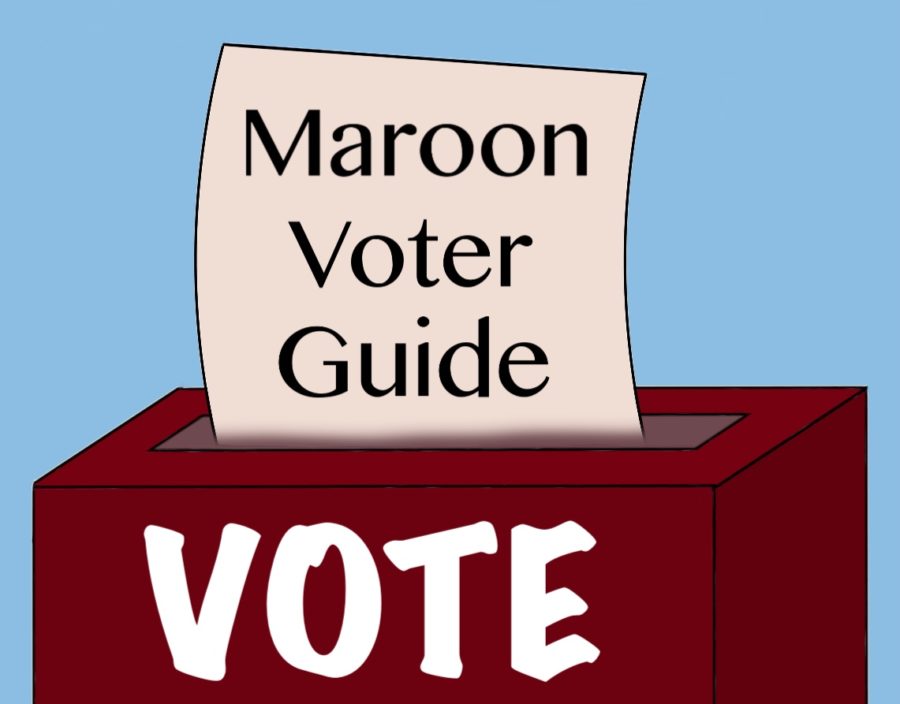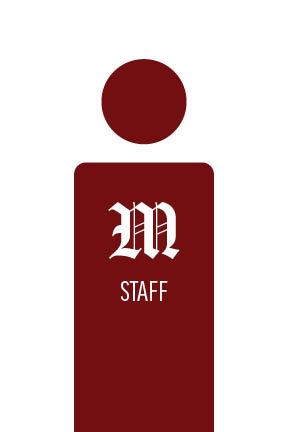Leading up to the March 17 primary, The Maroon has put together a series of explainers and candidate guides to help Hyde Park voters make informed choices. The rest of the guides can be accessed here.
Most people have a general understanding of what their representatives do once they’re elected to state and national legislatures; they listen to constituents, draft bills, and then vote on these bills to determine whether or not they can become laws.
While Hyde Park residents will get to decide on March 17 who they want representing them in the Illinois State Senate and Congress, they will also have a say in who fills a variety of other important but less understood positions in local and state government. Here is The Maroon’s guide to understanding those offices and the powers people who hold them have:
Cook County State’s Attorney
The Cook County state’s attorney leads the second-largest prosecutor’s office in the nation in Illinois’s most populous county. Their office is divided into seven bureaus: the Criminal Prosecutions Bureau, the Juvenile Justice Bureau, the Civil Actions Bureau, the Narcotics Bureau, the Special Prosecutions Bureau, the Administrative Services Bureau, the Investigations Bureau.
A state’s attorney presides over all criminal and civil legal matters within the county. Most of their power is exercised in the form of setting policies and precedents for the various cases that are dealt with by the office. As state’s attorney, they are expected to represent the Cook County government in legal proceedings, either prosecuting on the County’s behalf or by defending the County in matters that have been brought against it.
During her tenure, current State’s Attorney Kim Foxx has handled several high profile cases, such as that of Jussie Smollett. Foxx has also recently agreed to meet with the family of Charles Thomas, a UChicago student who was shot in April 2018 by the University of Chicago Police Department during a mental health crisis. Thomas is currently awaiting trial in Cook County Jail and has been charged with three counts of aggravated assault among other felony charges. #CareNotCops, an activist student group on campus, has urged Foxx to drop the charges against Thomas.
Illinois Supreme Court: First District
The Illinois Supreme Court is composed of seven justices who represent the five appellate judicial districts of the state: three from Cook County and one from each of the four remaining districts. Each justice is elected for a 10-year term, and the chief justice is elected by the court to serve a three-year term. On Election Day in the First District, candidates will compete for one seat, currently held by Justice P. Scott Neville.
As the state’s highest judicial body, the Supreme Court has appellate jurisdiction, or the power to review lower courts’ decisions, as well as limited original jurisdiction, meaning that they are the first court to hear certain cases. The court is required to hear cases involving capital punishment and cases in which the constitutionality of laws is called into question.
In addition to its judicial powers, the court may temporarily appoint judges to the Appellate Court to fill any vacated seats. It also has general supervisory and administrative authority over all state courts.
Some high-profile cases that have demanded action from the Illinois Supreme Court in recent years involved defendants Jussie Smollett, Jason Van Dyke, and Drew Peterson. The court will provide decisions in the near future on cases involving a proposed constitutional amendment to Illinois’s redistricting process, issues stemming from the state’s recent legalization of marijuana, life imprisonment for intellectually disabled adults, and other subjects.
Cook County Circuit Court Clerk
The clerk of the Circuit Court is an elected position, but it is an administrative office rather than a policy-making one. The clerk’s discretion over policy issues is limited, and they act primarily in a supportive role, assisting the Circuit Court judge with their judicial responsibilities. This fact has led some to call for the position to be appointed rather than elected, as it is in many other jurisdictions.
With a $124 million budget and a staff of approximately 1,480, the clerk is responsible for recording court proceedings and maintaining files for the Circuit Court of Cook County. As the largest of Illinois’s 24 judicial circuits, the Cook County Circuit Court sees around a million new cases filed every year.
The office has frequently faced criticism for opacity, inefficiency patronage (the exchange of government jobs for political favors), and an antiquated approach to record keeping that still relies heavily on paper documents. The slow pace at which Cook County has adopted a digitized record-keeping system has been a particular point of frustration for lawyers, litigants, and activists.
Metropolitan Water Reclamation District Board
The Metropolitan Water Reclamation District (MWRD) Board is a group of nine commissioners that make decisions on wastewater treatment and stormwater management in the greater Chicago area. Commissioners are elected at large in the district, “which encompasses 882.1 square miles and includes Chicago and 128 suburban communities throughout Cook County,” according to the MWRD’s website.
On election day, voters will elect commissioners to three of the board’s seats, currently held by commissioners Cameron Davis and Kimberly Neely Dubuclet, as well as Frank Avila, the board’s current chairman of finance. Ten Democrats and three Green Party members are vying for the positions.
The MWRD handles various projects involving water management in Cook County. One of their biggest projects was completed in the early 20th century, when they reversed the flow of the Chicago River so water flowed in from Lake Michigan and sewage and waste from Chicago wouldn’t accumulate in the lake, the city’s source of clean water.
Currently, the MWRD is in the second phase of the Tunnel and Reservoir Plan (TARP), also known as Deep Tunnel, which began in 1972 as a system of large tunnels and reservoirs designed to capture and relocate stormwater and sewage overflow during periods of heavy rain.











